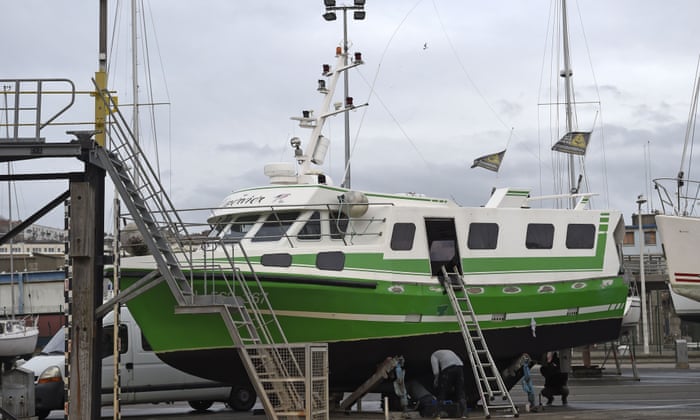The Allure of 'Their' Future
"This is something completely new for us. And it has absolutely exploded."
"The risks are extremely high [with strong currents in the Channel, and the water so cold] you would survive for less than an hour."
"It’s been an unusually good spell for winter – very light winds, no swell."
"That seems to have encouraged the criminals. These crossings are not being made by individuals using whatever they can find, they are organized by criminal networks. That’s new. It’s shockingly dangerous: this is the busiest sea lane in the world, more than 400 ships a day. The water is at 13C. Survival time, if you fall in, is an hour."
Marc Bonnafous, search and rescue operations, Cap Gris-Nez, France
"It was cold, very cold. The sea was calm, flat, but it was frightening. A dark night and, of course, no lights. Dangerous. We all knew it was dangerous. We could die. Instead, we’re back here [northern outskirts of Calais]."
"The man picks us up in his van, takes us somewhere, we don’t know where, we get in a boat. I don’t even know if he bought it or stole it."
"But I will keep trying as long as I can. I have to, of course. It is my future."
Wahid, 22, Iranian, twice-failed attempt to cross the English Channel
“They forced the window on my boat in an effort to break in."
"We could repair it. But others, they ripped open the control panels to try and jump-start them … They couldn’t go to sea. People have lost two, three days’ fishing, just before New Year’s Eve."
Anthony Cuvillier, captain, fishing boat Surcouf
"[The engine on one Boulogne boat was] completely wrecked [after intruders failed to open its valves]."
"Someone will get killed. And these boats can’t leave the port without appearing on the authority’s radar screen anyway. It’s crazy."
Alain Brulin, relief crewman, the Geoffrey Laurent
 |
| Workers repair L’Epervier, a boat that was stolen and damaged by migrants who tried to cross the Channel, in Wissant, northern France. Photograph: François Lo Presti/AFP/Getty Images |
A surge of migrant crossings the last three months of 2018 has been reported in Boulogne-sur-Mer, the largest fishing port in France. Those crossings are attempted in small inflatable boats setting off in the dark from beaches on the French coast. Often, however, the ships are fishing boats that have been stolen. And many of them become wrecked in the process. The owners of the fishing boats are frantic; this is their livelihood that is being threatened.
Smugglers and their migrant clients intent to reach Britain are on the lookout for any vessels they can find to allow them to cross the English Channel, despite the dangers inherent in that challenge which has always been viewed as unbreachable for its shifting currents and volatile weather making it an extremely dangerous option. The result is that fishing boat captains returning to Boulogne-sur-Mer with the day's catch tell a similar story of their boats being broken into.
Around 500 migrants, ten times the number as in 2017 made the attempt to voyage across the channel, about 30 kilometers at its narrowest point, with over half of those attempts succeeding; these crossings of huge concern to Britain, politicians hostile to immigration calling it a crisis. This is hardly immigration; it is the stealth, unwanted entrance of illegals determined to forge their way into Europe to escape a country that has failed to convince them their futures lie where they were born.
"This boat is my business; it's my only enterprise" Jean-Marie Baheu stated, working to fix a lock on his 13-meter boat, Murex, where someone had made the attempt to smash into the captain's cabin. Deck hands busy hoisting crates of crab as the captain worked to repair the damage on the Quai Gambette, the favoured docking spot where skippers can unload their catch directly to the stalls lining the waterfront, selling their newly-caught sea treasures.
There alone, twelve attempted break-ins were logged in recent weeks "We've never seen anything like this", Valerie Arnout, at her stand selling fish her brother's boat brought in that morning, worried. As the largest fish-processing center in Europe the town depends on its fleet for its very survival, leading some of the fishermen to claim they're prepared to sit up all night in their boats, with guns to respond to would-be break-ins.
Iranians have been identified as representing most of those making the crossing attempt, according to officials who reason they possess the funds to pay smugglers' hefty fees. Migrants were known to have paid their smuggler around $115,000 each, in one recent case, according to officials. One of the most trafficked waterways in the world, where giant container ships leave wakes threatening to tip inflatable skiffs, makes the option of stolen fishing boats irresistible.
Labels: Boats, Crimes, English Channel, Fishing, France, Migrants

<< Home